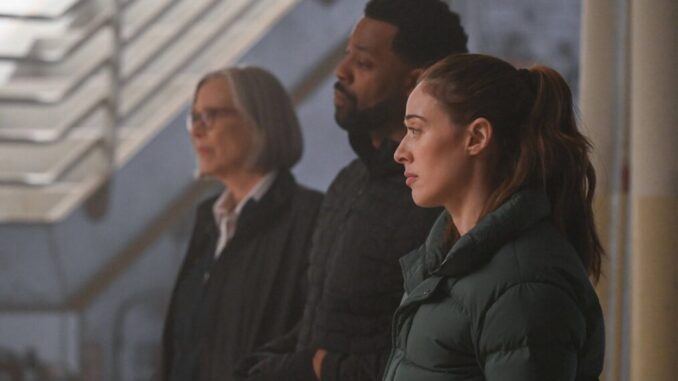
Chicago P.D. 2025: Echoes of the Past, Scars of the Future
The year is 2025. The harsh Chicago winds still whip through the streets, and the ever-present hum of sirens remains a constant reminder of the city’s underbelly. But something has shifted. The familiar grime of precinct 21 feels heavier, the lines etched deeper on Hank Voight’s face. The Intelligence Unit of Chicago P.D., once a formidable force, now faces its most insidious enemy yet: not a drug cartel, not a serial killer, but the chilling echoes of their own past, amplified and distorted by the technological advancements of the future.
The enemy, known only as “The Weaver,” is a ghost in the machine. They manipulate the city’s burgeoning AI infrastructure – the predictive policing algorithms, the facial recognition software that blankets the streets – to turn the very tools meant to protect the city against itself. Crimes become intricate performances, designed to exploit biases embedded in the AI, leading the police down rabbit holes of misinformation and manufactured narratives. It’s a game of shadows, where the reality is constantly shifting, forcing the team to question everything they believe to be true.
This enemy preys on the unit’s individual vulnerabilities, weaponizing their past mistakes and personal demons. For Voight, it’s the relentless pursuit of justice that often blurred the lines between right and wrong. The Weaver uses his past transgressions, cases where morality was compromised for results, to plant seeds of doubt, turning him into a pariah in the eyes of the public and his own team. “Remember Antonio Dawson?” whispers a manipulated deepfake video circulating online, reminding everyone of the consequences of Voight’s relentless drive. The past, once buried, resurfaces, amplified by the inescapable digital realm.
Hailey Upton, hardened by years on the force, finds herself haunted by the ghosts of victims she couldn’t save. The Weaver crafts intricate simulations, recreating crime scenes, forcing her to relive those traumatic moments, dissecting her every decision and whispering accusations of inadequacy. It’s psychological warfare, designed to break her resolve and make her question her ability to lead the team in the face of this new, amorphous threat.
Even Kevin Atwater, always the moral compass, struggles under the weight of systemic injustice. The Weaver highlights the racial biases inherent in the AI, showcasing how it disproportionately targets minority communities, forcing Atwater to confront the uncomfortable truth that the very technology he is sworn to protect is contributing to the problem. He faces a moral dilemma: uphold the law, or fight against a system that perpetuates inequality.
As The Weaver pulls the strings, the unit begins to unravel. Trust erodes, alliances fracture, and the lines between right and wrong become blurred once more. The technological prowess of the enemy forces them to confront their own reliance on technology, questioning the very definition of justice in a world saturated with algorithms and digital manipulation.
What makes this enemy so dangerous is not their brute force or strategic brilliance, but their intimate knowledge of the team. They understand their motivations, their fears, their deepest regrets. They exploit these vulnerabilities with surgical precision, turning the team’s strengths against them. The Weaver is not just a criminal; they are a mirror, reflecting back the unit’s own flaws and forcing them to confront the darkness within themselves.
In 2025, the fight against The Weaver is a fight for the soul of Chicago P.D. It’s a fight to reclaim the meaning of justice in a world where truth is malleable and technology reigns supreme. It’s a fight that will test the limits of their loyalty, their morality, and their ability to adapt in a rapidly evolving world. The stakes are higher than ever before. The future of the city, and the future of the Intelligence Unit, hangs in the balance, dependent on their ability to confront the ghosts of the past and navigate the treacherous landscape of the present. Only by facing their own demons can they hope to defeat the enemy that knows them best. And in the cold, unforgiving streets of Chicago, redemption is a battle fought one soul at a time.
